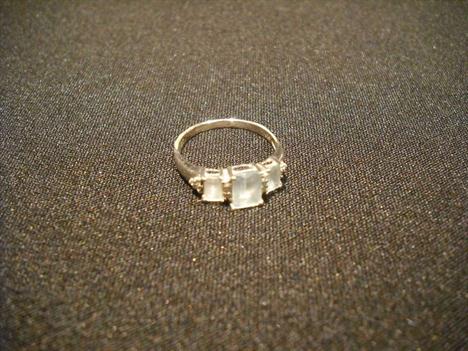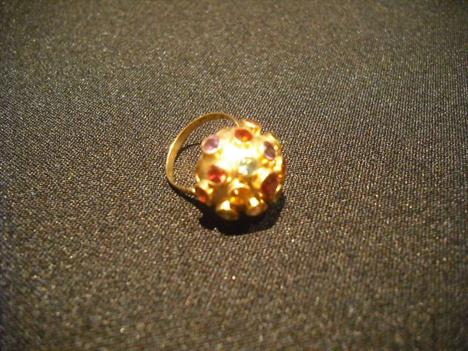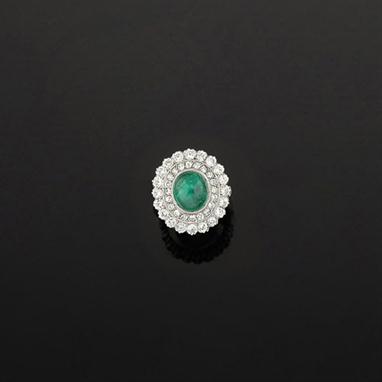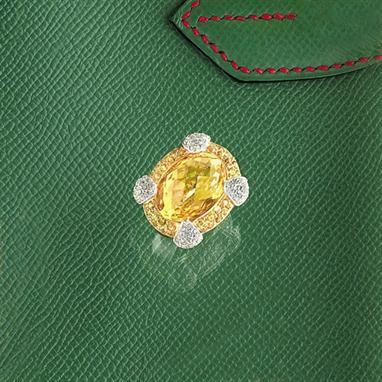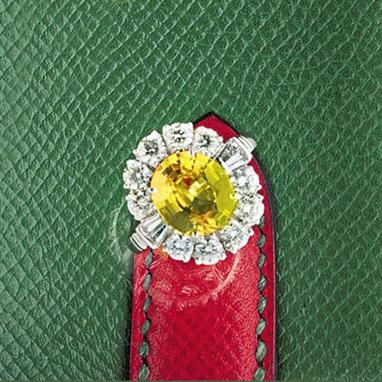We found 1087811 price guide item(s) matching your search
There are 1087811 lots that match your search criteria. Subscribe now to get instant access to the full price guide service.
Click here to subscribe- List
- Grid
-
1087811 item(s)/page
AN INDIAN SILVER-MOUNTED MATCHLOCK MUSKET, 19TH CENTURY with swamped sighted barrel retained by numerous silver bands of differing width including a broad engraved band at the breech and the muzzle, the latter fitted with standing back sight and pan with pivot cover, action enclosed by sheet silver set with rosettes and with beadwork border, steel serpentine, hardwood full stock, the butt applied with silver panels set with rosettes en suite with the action, bulbous butt, an iron ring for suspension, and original silver-tipped wooden ramrod 106cm; 41 3/4in barrel Provenance Robin Wigington
A TURKISH FLINTLOCK BLUNDERBUSS, 19TH CENTURY with two-stage barrel swelling towards the muzzle and chiselled over the breech, chiselled rounded lock, chip-carved hardwood full stock, brass mounts, and steel bar with a ring for suspension; together with a Japanese matchlock pistol, late 19th/20th century, with bronze barrel cast as a dragon, and ebonised full stock the first: 49.5cm; 19 1/2in (2)
THREE SMALL-SWORDS, 18TH-20TH CENTURIES the first in French 18th century style, with tapering blade decorated with etched and gilt patterns on blued panels at the forte, and gilt-brass hilt cast in low relief, in its scabbard; the second partly 19th century, with tapering fullered blade and brass hilt incorporating a steel dish, in its scabbard; and the third late 18th Century, with blade of flattened-hexagonal section, steel hilt of faceted bars including ring-guard and faceted ovoid pommel (worn) the first: 75.8cm; 29 7/8in blade (3)
A RARE 1805 PATTERN NAVAL OFFICER`S SWORD MADE FOR REAR ADMIRAL SIR THOMAS USSHER BY SAMUEL BRUNN, 56 CHARING CROSS, LONDON with tapering regulation blade of hollow-diamond section, etched and gilt on a blued panel with the crowned Royal arms enclosed by foliage, the figure of Brittania and a putto on one side and foliage, the Royal arms for 1801-16, the figure of Neptune and further designs of foliage on the other (the upper portion with small chips and areas of pitting), gilt-brass stirrup hilt cast with a fouled anchor on the langets, the back-strap and pommel finely chased as a maned lion`s head, banded ivory grip bound with gilt-wire, set with a gilt-brass plaque engraved with the owner`s crest (the reverse plaque missing, stirrup-guard loose), in its original leather scabbard with gilt-brass chape, middle bands and locket (leather worn, seam split), each engraved with border panels filled with foliage, the locket and middle band each with a suspension ring chased with key pattern, the former engraved `Brunn sword Cutler to the Prince Regent and HRH the Duke of Clarence 56 Charing Cross London`, and retaining much original gilding throughout 81.3cm; 32in blade Samuel Brunn is recorded at 56 Charing Cross circa 1803-19. The crest is that of Ussher of Ballysaggartmore, County Waterford, Ireland. Sir Thomas Ussher (1779-1848) entered the navy in January 1791 on board the Squirrel on the home station and on the west coast of Africa; afterwards, in the Invincible, he was present in the action of 1 June 1794; and in 1795-6 was successively in the Prince George, Glory, and Thunderer, flagships of Sir Hugh Cloberry Christian, by whom he was appointed acting lieutenant of the Minotaur. In that capacity he served on shore with a party of seamen at the reduction of St. Lucia in May 1796. He was afterwards acting lieutenant of the Pelican brig, was confirmed in the rank on 17 July 1797, was repeatedly engaged with the French or Spanish privateers, and on 5 April 1798, in attempting to cut out one lying in the Augustine River near Cumberland Harbour (Guantanamo) in Cuba, he was severely wounded in the right thigh. While in the Pelican he is said to have been in upwards of twenty boat engagements with the enemy. In May 1799 he was appointed to the Trent, and in her returned to England in September 1800. The effect of his many wounds obliged him to remain on shore for some months; but in June 1801 he was appointed to command the Nox cutter, stationed at Weymouth in attendance on the king. In September 1803 he commanded the Joseph cutter, and in April 1804 the Colpoys brig attached to the fleet of Brest under Admiral (Sir William) Cornwallis. His vigilance and energy in quest of intelligence repeatedly obtained the admiral`s approval. Later on the Colpoys was employed in the Bay of Biscay and on the north coast of Spain. On 21st March 1806 Ussher was awarded a Lloyds £50 sword for the capture of three Spanish luggers at Avillas. On 18 October 1806 he was promoted to the rank of commander and appointed to the Redwing sloop, in which he was chiefly employed in protecting the trade against the Spanish gunboats and privateers near Gibraltar. On this service he was repeatedly engaged with the gunboats or armed vessels, often against a great numerical superiority, and especially on 7 May 1808, near Cape Trafalgar, where he fell in with seven armed vessels convoying twelve coasters. Of the nineteen, three only escaped, eight of the others being sunk and eight taken; the loss of men to the enemy in killed, drowned, and prisoners, was returned as 240. On Lord Collingwood`s report of this and other gallant services, Ussher was promoted to post rank by commission dated 24 May 1808. On his return home he was entertained at Dublin at a public dinner, and presented with the freedom of the city. In 1809 he commanded the Leyden in the operations in the Scheldt; and in 1811-12 the 26-gun frigate Hyacinth in the Mediterranean, where, on 29 April 1812, he led a boat attack against several privateers moored in the port of Malaga, and, in face of a murderous musketry fire from the shore, which killed or wounded 68 out of 149, brought out two of the largest privateers, and did what damage he could to the others. Although the enterprise was not fully successful, the commander-in-chief and the admiralty signified their entire approval of Ussher`s conduct, and in October he was moved to the Euryalus of thirty-six guns, from which, in February 1814, he was again moved to the Undaunted. In both of these he was employed in the blockade of Toulon and along the south coast of France. In April 1814, being in the Undaunted close to Marseilles, a deputation, consisting of the mayor and chief men of the city, came on board to acquaint him of Napoleon`s abdication and of the formation of a provisional government. Almost immediately afterwards he received instructions to prepare to convey the ex-emperor to Elba, and at Fréjust on 28 April received him on board. On the 30th he anchored at Porto Ferrajo, and on 3 May Napoleon landed. The Undaunted remained at Elba till the ex-emperor`s baggage had been landed from the transports, and then sailed for Genoa. In the end of June Ussher was moved into the Duncan of seventy-four guns, in which he shortly afterwards returned to England. On 4 June 1815 he was nominated a C.B.; on 2 Dec. 1815 was awarded a pension of 200l. a year for wounds; on 24 July 1830 was appointed equerry to Queen Adelaide, and in 1831 was made a K.C.H. and was knighted. From 1831 to 1838 he was successively superintendent to the dockyards at Bermuda and Halifax; he was promoted to be rear-admiral on 9 Nov. 1846, and in July 1847 was appointed commander-in-chief at Queenstown, where he died on 6 Jan. 1848. Taken from the Dictionary of National Biography.
A RARE PAIR OF GERMAN BRONZE CANNON BY THE MASTER HP, DATED 1553 each with multi-stage barrel swelling slightly towards the muzzle, small fore-sight, impressed with an alternating arrangement of beads and panels on the muzzle face and engraved with a band behind, decorated throughout with chiselled ornament in high relief, including raised astragal mouldings, a classical warrior in low relief above the maker`s initials `HP` over the chase, a panel of candelabrum, the owner`s crested arms, the inscription and the date `Anno Domini 1553` and a further panel of candelabrum over the first reinforce, all on a finely punched ground, integral pan with iron pivot for a cover (now missing), the base-ring fitted with a moulded tubular back-sight (one missing), and plain flat cascabel, the underside fitted beneath with a large triangular lug in the middle, a pair of small lugs in front and a single lug behind for attaching to a tiller (one with a small hole in the centre ahead of the pan, the other missing a portion of its rear section and now in two pieces) 104.2cm; 41in barrels (2)
A BRUNSWICK STATE TWO-HAND PROCESSIONAL SWORD OF THE GUARD OF JULIUS, DUKE OF BRUNSWICK AND LÜNEBURG IN WOLFENBÜTTEL (1528-89), NO. 237, DATED 1573 with straight double-edged blade of flattened diamond-section, rectangular ricasso formed with a pair of slender up-turned lugs in the middle, boldly incised with the crowned Ducal monogram, the number and the date within a linear frame on each side, iron hilt comprising a pair of ribbon-like quillons each interrupted by a fish-shaped moulding and engraved with scrolling foliage (one quillon expertly repaired), curled forward and back at the respective down-curved terminals, a pair of small flat engraved serpentine lugs at the base, engraved inner and outer ring-guards, each interrupted with three baluster mouldings and filled with a saltire, the former with thumb-ring, thick pierced crutch-shaped pommel, and later leather-covered wooden grip 133cm; 52 1/2in blade
A GERMAN TWO-HAND PROCESSIONAL SWORD, EARLY 17TH CENTURY with double-edged blade of flattened-hexagonal then flattened-diamond section, rectangular ricasso cut with a pair of lines and stamped with a series of dots, iron hilt comprising a pair of slightly down-curved flat quillons with shaped terminals, each interrupted by a moulding and formed with a slender curled lug beneath, inner and outer ring-guards each interrupted by a circular central moulding framed by a pair of incised lines and filled with a plate, later globular pommel and later turned wooden grip 117.5cm; 46 1/4in blade
A GERMAN TWO-HAND PROCESSIONAL SWORD, LATE 16TH/EARLY 17TH CENTURY with double-edged blade of flattened-diamond section, long rectangular ricasso formed with a pair of crescentic lugs and incised with a pair of lines on each side, iron hilt comprising a pair of down-curved quillons with tightly curling terminals formed with a further pair of scrolled terminals behind, inner and outer ring-guards each filled with a fleur-de-lys, decorated throughout with scrollwork, later large globular pommel, and later turned wooden grip 137.8cm; 54 3/8in blade
A BRUNSWICK ETCHED TWO-HAND PROCESSIONAL SWORD , LATE 16TH CENTURY/EARLY 17TH CENTURY, ALMOST CERTAINLY MADE THE GUARD OF JULIUS, DUKE OF BRUNSWICK AND LÜNEBURG IN HEINRICH GRUBENHAGEN (1564-1616) with double-edged blade of flattened-hexagonal section, strongly tapering at the point, stamped with two bladesmith`s marks on the respective sides including a cross-and-orb mark with some brass inlay, finely etched against a blackened stippled ground with a shaped panel filled with a crowned sun-in-splendour above a pair of celestial masks on one side and a crowned profile mask above the inscription `RVEDOLEV/S.DGREXP/OLDTV.SGO/FENECIA` on the other, long rectangular ricasso with a pair of long crescentic lugs, iron hilt comprising a pair of strongly down-curved quillons, each interrupted by a stylised fish-moulding, broadening at the tips, each tightly curled and slightly canted back and forward respectively, fitted at the base with a pair of lugs, inner and outer ring-guards broadening in the centre, each filled with a shaped plate, pierced thick crutch-shaped pommel, and retaining an early leather-covered wooden grip 128cm; 50 3/8in blade The form of the present sword is typical of other of the Brunswick group. However, the combination of the inscription and the portrait profile which appears to be of Rudolph II might suggest that this was part of a group made for his entry into Prague or a ceremony when he was there.
A GERMAN TWO-HAND PROCESSIONAL SWORD, DATED 1628 with double-edged blade of flattened-hexagonal section strongly tapering towards the point, cut with a cross-and-orb mark ahead of a pair of slender fullers filled by the bladesmith`s inscription `Iohannis Aollich Me Fecit In Solingen` on each side, long rectangular ricasso formed with a pair of slender wavy lugs, incised with a pair of lines and stamped with a mark, a maned stag`s head on each side, and with the date and initials AF on one side only, iron hilt comprising a pair of straight flat swelling quillons incised with a pair of lines and with small bud-shaped finials, a pair of slender lugs, inner and outer ring-guards each incised with a central pair of lines and filled with a plate, globular pommel incised with lines, and leather-covered wooden grip 125cm; 49 1/4in blade Exhibited Arms, Armour & Militaria lent by H.R.H. The Duke of Brunswick at the Tower of London, April 10th-October 31st 1952, cat. No. 90 Johannes Ohlich was a member of the well known member of the Solingen family of sword smiths, some of whom migrated to Shotley Bridge. There are six makers of this name working during the 17th Century.
A GERMAN HUNTING BAG, 18TH CENTURY with large leather body left open at one end and pierced for a lace, faced with a badger pelt, the head forming a flap for a small pocket at the front, fitted with a single brass ring, and retaining its leather strap with iron buckle 64.5cm; 25 1/2in x 31cm; 12 1/4in Literature Dr. J. Fastenau, Die Waffensammlung, 1910, no. 307.
A BRITISH NAVAL DIRK, CIRCA 1820 with tapering blade etched with foliage, scrolls, trophies-of-arms and a fouled anchor on the respective faces, gilt-brass cross-piece cast with foliage in low relief, turned ivory grip (closed cracks), gilt-brass ferrule at the base, in its leather scabbard with brass locket and middle-band each with a ring for suspension (chape missing) 35.5cm; 14in From the collection of Wilhelm, Duke of Brunswick and Lüneburg and Duke in Brunswick-Bevern (1806-64).
A BAVARIAN HUNTING SWORD, SIGNED STROBLBERGER IN MÜNCHEN, MID-19TH CENTURY with fullered blade etched and gilt with foliage, a trophy-of-arms and a garland on a blued ground over the lower half on each side, gilt-brass hilt cast and chased with foliage and trophies-of-hunting in low relief, including small shell-guard, a pair of recurved quillons, and polished horn grips retained by three pairs of rivets with foliate heads, in its original scabbard gilt-brass mounts en suite with the hilt, including signed locket (suspension ring missing), and complete with its accompanying knife 61cm; 24in blade
A .52 CALIBRE U.S. SHARPS NEW MODEL 1859 BREECH-LOADING CARBINE, NO. 32700, CIRCA 1859-66 of standard production specifications, with 22in barrel, lock with Lawrence tape primer, walnut half-stock, iron saddle bar with ring and patchbox with sprung trap cover, and brass butt-plate, in a later wooden case 99.5cm; 39 1/4in overall
An automatic "Hour Angle" Aviator's watch, by Longines The white enamel dial with Roman numerals and inner ring calibrated for 180 degrees with Arabic numerals, inner revolving silver matte disc with Arabic numerals for 60 minutes and 15 degrees in red, in circular case with hinged back revealing the glazed movement, the rotating coin-edged bezel calibrated for 15 degree graduations, the unadjusted 25 jewel movement signed Longines and No. L989.2 and 58047549, diameter of case 38mm., to alligator straps Dial signed Longines, case back signed EF Co Longines, case interior signed Longines Hour Angle Watch Designed by Col. Charles A Lindbergh and No. 989.5216 24678367 View on Christie's.com
A limited edition titanium, automatic "AMVOX1" alarm wristwatch, by Jaeger-LeCoultre in association with Aston Martin The circular grey dial with luminous Arabic and baton numerals, luminous hands, central rotating hand for alarm, outer rotating 1/5th seconds ring, Arabic fifths divisions, and date aperture, the case with crown at "2" for alarm winding and setting and crown at "4" for time and date setting, the case with Aston Martin logo, to maker's leather straps with maker's buckle, case width 42mm., in maker's box with card outer and instruction booklet Dial signed Jaeger-leCoultre, case signed Limited Series No. 0993 1000 Aston Martin Jaeger-leCoultre and No. 0993 190.T.97 View on Christie's.com
An amethyst and diamond pendant, by Cartier and an amethyst ring The pendant with cut-cornered rectangular amethyst drop to diamond arched surmount and fine link neckchain; the oval mixed-cut amethyst single stone ring with diamond line shoulders See page 49 for the illustration of the pendant Pendant signed Cartier and No. 47 81603 (2) View on Christie's.com
A spinel and diamond three-stone ring The cushion shaped pinkish-red spinel, weighing 2.35 carats, between princess-cut diamond single stones, to a plain hoop Accompanied by report No. GRS2010-040514T from GRS GemResearch Swisslab dated 30th April 2010 stating the natural spinel showed no indication of treatments, origin: Burma (Myanmar) View on Christie's.com
A late 19th century ruby and diamond five-stone ring Set to the front, the three oval mixed-cut rubies interspaced by old brilliant-cut diamond spacers, to an openwork gallery and scrolling shoulders, Birmingham hallmark for 18ct. gold, finger size M View on Christie's.com
-
1087811 item(s)/page


